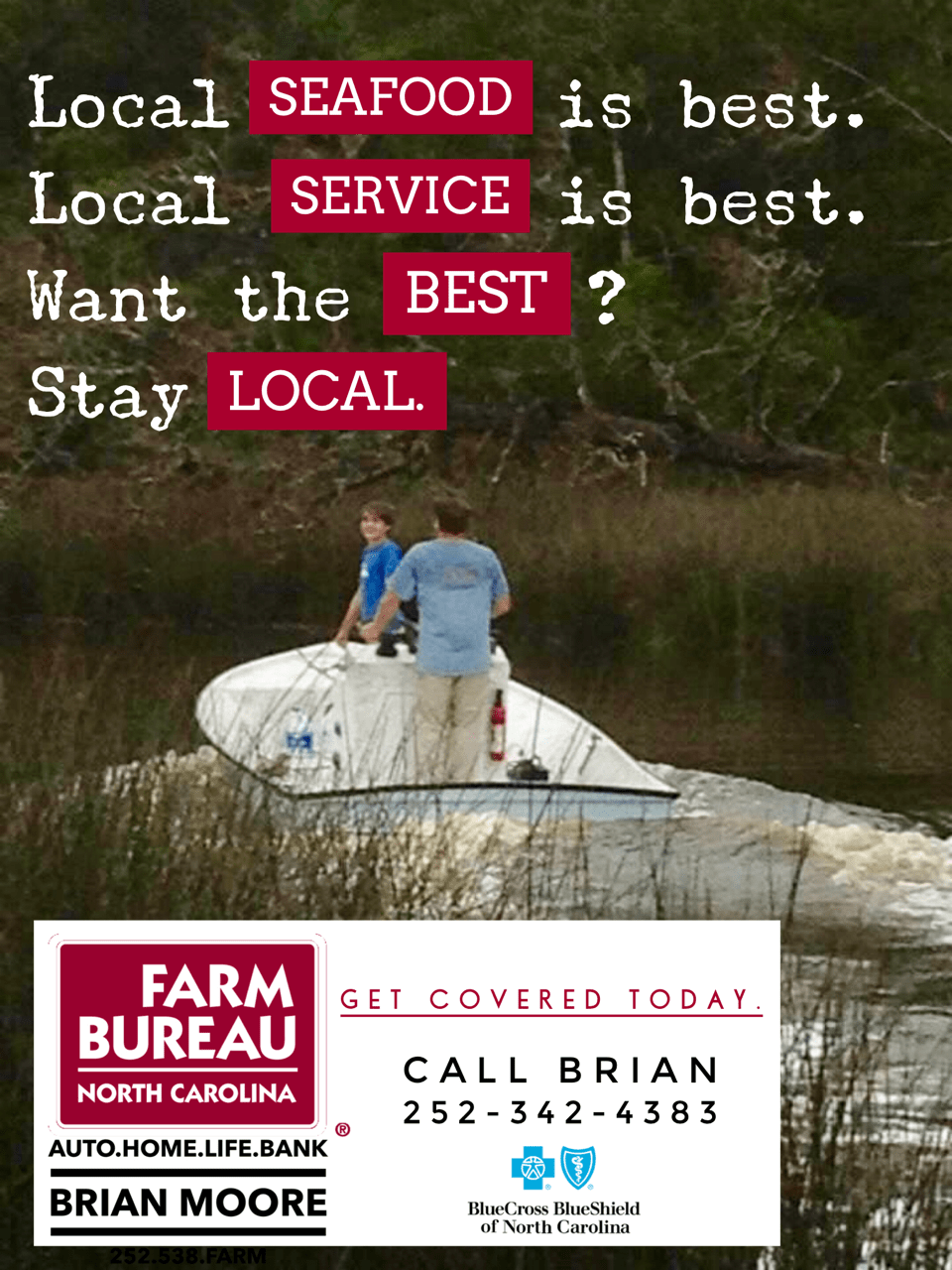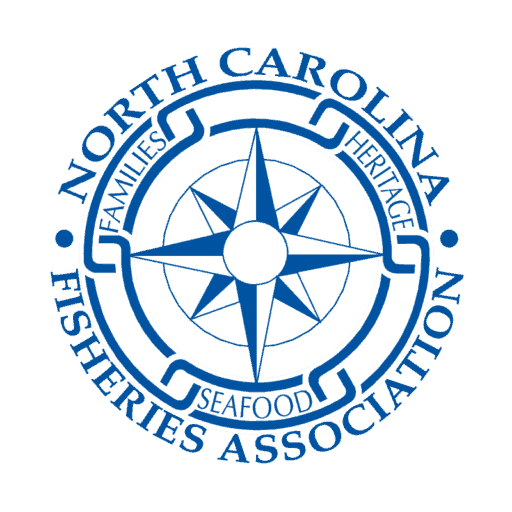MFC August Business Meeting
The North Carolina Fisheries Association (NCFA) provided written and verbal comments to the Commission on two issues of concern, rulemaking for small mesh gillnets and recreational fishing tournaments targeting flounder, at their August meeting.
In addition to these comments, we had multiple personal conversations with individual commissioners outlining our concerns prior to the meeting. Our comments regarding the possibility of initiating rulemaking for the use of small mesh gill nets focused on whether rulemaking, for this fishing gear, was necessary as NC statutes prohibit the commission from adopting “unnecessary” rules.
Five of the nine Commissioners appeared to agree with the NCFA and voted not to initiate rulemaking but instead leave the regulation of small mesh gill nets to the FMP process when species specific concerns were identified, and regulation was “necessary.”
Four Commissioners, Bizzell, Roller, Kornegay, and McNeill, seemed to support rulemaking for small mesh gill nets and voted against the motion, made by Commissioner Cross, but provided no information suggesting rulemaking was necessary. We find it both telling and concerning that these Commissioners would go against NC statutes and support unnecessary and burdensome rules simply because it is their personal will to restrict or even prohibit the use of gill nets in NC waters.
Just as concerning was the discussion that occurred towards the end of the meeting when Commissioner Robert McNeill asked Division staff how they intended to regulate the use of small mesh gill nets through the Southern Flounder and Shrimp FMP’s which are currently being developed.
McNeill, who has served on the commission since August of 2019, has attended numerous meetings where the issues of shrimp, Southern Flounder, and gill nets have been discussed, in fact I doubt he’s attended a single meeting where each of these issues has not been discussed. While on the commission he has been involved in the development and adoption of Amendment 2 to the Southern Flounder FMP, as well as the development of both the Southern Flounder Amendment 3 and Amendment 2 to the Shrimp FMP. During these discussions he has been presented with mountains of data, none of which suggests that small mesh gill nets are an area of concern for either the Southern Flounder or Shrimp fisheries.
We find it unacceptable that Commissioner McNeill, whether motivated by ignorance or ill intent, would even suggest that the state attempt to manage the use of small mesh gill nets through the Southern Founder or Shrimp FMP’s.
While we made it clear to the entire commission that simply willing something to be done does not make it “necessary” it’s evident that a few of the Commissioners did not take those comments to heart.
The issue of recreational fishing tournaments targeting Southern Flounder outside of the open harvest season, which was brought to our attention in the week just prior to the MFC meeting, was discussed but no actions were taken by the commission. Our primary concerns revolve around the waste created by encouraging anglers to target flounder when harvest is prohibited and how this waste will impact rebuilding of the stock and recreational harvest in the future.
Many anglers don’t realize that the commission is considering adopting a quota and accountability measures for both the recreational and commercial Southern Flounder fisheries. The quota, if approved, will be based on the removals in pounds of fish, meaning the pounds of fish harvested and pounds of dead discards will both count towards the quota. By targeting flounder when the harvest season is closed anglers are increasing the number of fish released and subsequent dead discards, which already make up a significant percentage of recreational removals. If the pounds of fish wasted through catch and release continue to increase the entire recreational quota will be consumed by dead discards preventing harvest of flounder for years. There is also a very real possibility that increased recreational effort/removals could slow or even prevent rebuilding, triggering further restrictions in the future.
Again, most anglers aren’t aware of these issues but groups like the Coastal Conservation Association (CCA), which sponsors these tournaments, certainly is aware of the repercussions but chose to encourage anglers to target flounder anyway.
It amazes me that a group, which claims to speak for the resource, would encourage increased effort and waste in a fishery that is overfished. Anglers need to be aware of these issues and act responsibly especially if the folks claiming to represent their interest choose not to!
Glenn Skinner-Executive Director-NCFA
MID ATLANTIC FISHERY MANAGEMENT COUNCIL ELECTRONIC VESSEL TRIP REPORTING TRAINING SESSION
Below is information on the Mid-Atlantic Fishery Management Council’s website about a training session for electronic vessel trip reports (eVTR), which will be required for all fishermen holding permits issued by NOAA Fisheries Greater Atlantic Regional Fisheries Office (GARFO). The electronic reporting of vessel trip reports begins on Nov. 10, 2021. Please feel free to pass this information along to anyone else who might be interested.
https://www.mafmc.org/newsfeed/2021/council-to-host-evtr-training-workshop-september-15-500-700-pm
Beginning on November 10, 2021, all commercial vessels with federal permits for species managed by the Mid-Atlantic or New England Council will be required to submit vessel trip reports (VTRs) electronically as eVTRs within 48 hours of the end of a trip.
The MAFMC will host a training workshop via webinar on Wednesday, September 15th from 5:00 pm to 7:00 pm. This workshop will include a step by step tutorial of ACCSP’s free software application eTrips Mobile 2 followed by time for questions. This app is compatible with Windows 10 (PC), and both Apple/Android phone and tablet platforms. To benefit from this step by step tutorial, we recommend downloading the eTrips Mobile 2 app and obtaining a SAFIS Username and Password before the workshop: https://www.accsp.org/what-we-do/safis/etrips-mobile-instructions/.
Webinar Details
- Click here to join the meeting
- Meeting number: 1790333007
Mid-Atlantic Council Seeks Applicants for Spiny Dogfish Advisory Panel VacanciesApplications due Wednesday, September 22, 2021 The Mid-Atlantic Fishery Management Council is accepting applications to fill up to nine vacant seats on the Spiny Dogfish Advisory Panel. Individuals selected for the advisory panel will be appointed to serve for the remainder of the Council’s advisory panel term ending on June 30, 2024. The Council completed an initial round of advisory panel appointments earlier this year. However, due to the limited number of applications received for the Spiny Dogfish Advisory Panel, the Council recommended a supplemental recruitment to ensure that membership is reflective of stakeholder interests and the fishery’s geographic range. Advisory panels provide information and recommendations to the Council during the development of fishery management actions. One of the chief responsibilities of advisory panels is the development of annual Fishery Performance Reports, which provide the Council and SSC with information about the factors that influenced fishing effort and catch within each fishery during the previous year. Advisory panels are composed of individuals with diverse experience and interest in Mid-Atlantic fisheries. Members may include commercial fishermen, recreational anglers, for-hire operators, commercial dealers, scientists, environmentalists, and other members of the interested public. Most advisory panels meet 1-2 times per year. Advisors are compensated for travel and per diem expenses for in-person meetings, but meetings are often convened via webinar. How to Apply Anyone interested in applying for the Spiny Dogfish AP may apply online or download an application at www.mafmc.org/advisory-panel-application. Completed applications must be received by Wednesday, September 22, 2021. Contact For questions about the Spiny Dogfish AP, contact Jason Didden at jdidden@mafmc.org, (302) 526-5254. For questions about how to complete or submit the application, contact Mary Sabo at msabo@mafmc.org, (302) 526-5261. |
|
LEGISLATIVE UPDATE for 9/3/2021
NOMINEE FOR SECRETARY OF DEQ:
Elizabeth Biser was confirmed as Secretary for the Department of Environmental Quality (DEQ), by the full Senate last week. Congratulations Secretary Biser!
H-181 WILDLIFE RESOURCES COMMISSION AMENDMENTS;
sponsored by Adams, Yarborough & Wray;
Approved this week by the full Senate. There was an amendment added in the Senate last week but nothing for us to be concerned about. The bill is now back in the House for concurrence. Here is the latest version:
https://www.ncleg.gov/Sessions/2021/Bills/House/PDF/H181v7.pdf
The General Assembly will take a few days off for the Labor Day holiday. It’s looking like they’ll be in session till sometime in October. And that might be optimistic!
God bless,
Jerry

